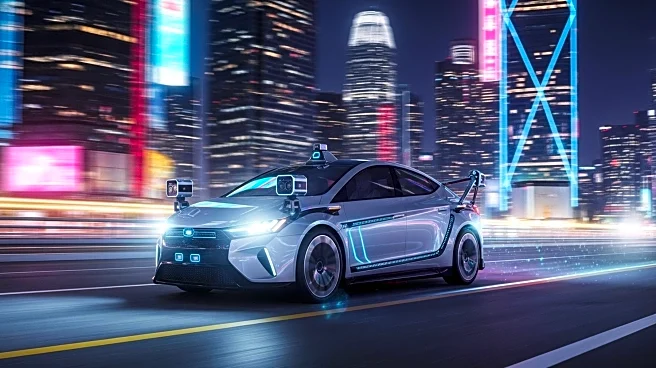What is the story about?
What's Happening?
Waymo has been granted an extension on its permit to test autonomous vehicles in New York City until the end of 2025. This extension allows Waymo to continue deploying up to eight Jaguar I-Pace vehicles in Manhattan and Downtown Brooklyn, with a human safety operator present. The move is a significant step towards potentially launching a robotaxi service in NYC. However, Waymo still requires additional licenses from the city’s Taxi and Limousine Commission to operate commercially. Currently, Waymo is prohibited from carrying passengers or providing for-hire services under existing regulations. Despite these restrictions, the continued testing is seen as a positive move towards demonstrating the safety and benefits of autonomous vehicles in urban environments. Waymo already operates commercial services in several U.S. cities, including San Francisco and Los Angeles, and plans to expand to other locations such as Miami and Washington, D.C.
Why It's Important?
The extension of Waymo's testing permit in New York City is a crucial development in the advancement of autonomous vehicle technology in urban settings. This move could pave the way for broader acceptance and integration of robotaxis in major cities, potentially transforming urban transportation. The ability to test in a complex environment like NYC provides valuable data and insights into the challenges and benefits of autonomous vehicles. If successful, Waymo's efforts could lead to reduced traffic congestion, lower emissions, and improved safety on city streets. The expansion of autonomous vehicle services could also stimulate economic growth by creating new jobs in technology and transportation sectors. However, it also raises questions about regulatory frameworks and the readiness of infrastructure to support such innovations.
What's Next?
Waymo's next steps involve securing additional licenses from the New York City Taxi and Limousine Commission to operate commercially. The company will continue to focus on demonstrating the safety and reliability of its autonomous vehicles during the extended testing period. Stakeholders, including city officials and transportation regulators, will likely monitor the outcomes closely to assess the feasibility of integrating robotaxis into the city's transportation network. Public opinion and acceptance will also play a critical role in shaping future policies and regulations regarding autonomous vehicles.
Beyond the Headlines
The testing of autonomous vehicles in New York City highlights broader ethical and legal considerations, such as data privacy, cybersecurity, and liability in the event of accidents. As technology advances, these issues will become increasingly important in shaping public policy and consumer trust. The long-term implications of successful robotaxi integration could lead to shifts in urban planning, with potential reductions in personal vehicle ownership and changes in public transportation systems.
















